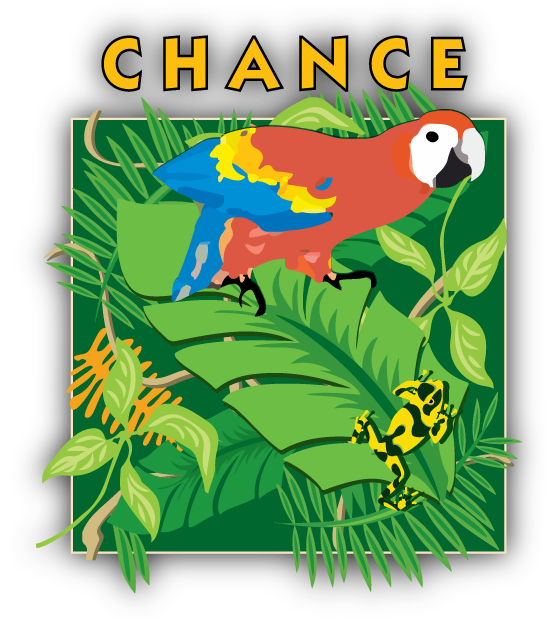Mission Statement
Penn State CHANCE is committed to preparing global-minded citizens who understand the importance of restoring and protecting the biodiversity of our planet's ecosystems, and who will address the challenges of our time such as energy, air, food, water, and climate change in their lifetimes. Through experiential, interdisciplinary, and research-focused short-term study abroad programs, CHANCE empowers undergraduates and teachers to take on leadership roles in conservation. and global sustainability.
China 2015
CHANCE participants collaborate with international peers to tackle real-world environmental challenges.
What is CHANCE?
Penn State accredited environmental education program that teaches conservation biology (the science and practice of conserving Earth's biological diversity) and global sustainability (the pursuit of societal, environmental, and economic balance) at the front line. To do this, CHANCE creates unique short-term study abroad international field courses which immerse its participants, undergraduate students and, on occasion, high school science teachers, in nature. Participants work directly in the field with scientists and conservationists to EXPLORE species biodiversity, RESEARCH environmental realities, and CONSERVE the biological diversity of select and threatened ecosystems around the world.
CHANCE was founded in 2004 as a partnership with The Pennsylvania Department of Education (PDE), and today has nearly 60 partners, both public and private, worldwide. Several of our key partners include: Aix Marseilles University, France; ATAS International, Inc., U.S.A.; CIVIS – A European Civic University, European Union; James Cook University, Australia; Jiangnan University, China; Nanjing University, China; National Association of Biology Teachers (NABT), U.S.A; Ministry of Education and Research, Romania; National and Kapodistrian University of Athens, Greece; Organization for Tropical Studies at La Selva (OTS), Costa Rica; Sanofi Pasteur, U.S.A; Universidad Católica Boliviana “San Pablo,” Bolivia; Universite Libre de Bruxelles, Belgium; University of Bucharest, Romania; WIDECAST – The Wider Caribbean Conservation Network (for a complete list see CHANCE Partners). As such, CHANCE has evolved and grown exponentially.
ROmania 2021
Undergraduates are mentored by research scientists as they address environmental challenges.
CHANCE and its nearly 60 worldwide sponsors and partners have collectively broken out of the traditional boundaries of didactic education and effectively work together to create informal, interdisciplinary learning environments that allow participants to travel worldwide to perform scientific research that addresses an environmental issue. Short-term study abroad programs have addressed such issues as macroalgal blooms confronting/suffocating the Great Barrier Reef (Australia); deforestation of Central American rainforests (Costa Rica); pollution of the Yangtze River (Chang Jiang) and its watershed (China); eutrophication (algal blooms) of Lake Tai (China); habitat destruction of coral reefs and mangroves (Cuba); the impact of global climate on rainforest biodiversity (Panama); and sea turtle extinction (Panama, Costa Rica, and Cuba). While in the field, undergraduates undertake rigorous faculty mentored research projects, give a formal presentation of their results and ideas for sustainable solutions to stakeholders at a CHANCE orchestrated international symposium, and carry out hands-on conservation activities that further unmask the life-sustaining relationships between the human and nonhuman worlds. CHANCE curriculum is grounded in evidence-based teaching practices and teaching frameworks, and through its continual assessment it has become a U.S. model for high-impact short-term study abroad programming, mentored Course-based Undergraduate Research Experiences (CUREs), and sustainability education in higher education.
A scientifically literate global society fueled by environmentally conscious individuals who work towards sustainable lifestyles and can address the issues confronting an increasingly complex world is being realized through CHANCE.
Australia 2017
Course participants perform research-based projects directly in the field.
International Field Courses
Each CHANCE international field course includes approximately 20 select undergraduate and graduate students from Penn State University and partnering universities, and college professors and research scientists from around the world who work with governmental and non-governmental organizations (NGO's), academic institutions, and/or businesses worldwide on research-based environmental projects and conservation activities online and directly in the field.
Mentored teams of binational or international students may study the effects of nitrogen overload from urbanization and industrialization on algal blooms (eutrophication) in China’s third largest freshwater lake, Tai Hu, bordering Jiangsu and Zhejiang provinces; monitor tree dynamics (trunk girth, leaf stomata density, and seedling growth) as they relate to temperature changes in the lowland tropical rainforests of Barro Colorado Island, Panama; record the nesting activity of endangered green and leatherback sea turtles, relocate and monitor turtle nests, and carry-out morphological analysis while tabulating numbers of successful hatchlings in areas of poaching and over-fishing in Gandoca, Costa Rica; analyze the feeding preferences and nesting dynamics of bluebird populations in endangered habitats of the Greater Yellowstone Ecosystem (GYE) of the United States; carry-out water quality analyses using bioindicators and organic compound assays to investigate the status of waste management and microplastic pollution of waterways within the Danube delta, Romania. Importantly, to carry-out their research, group participants undertake a rigorous CURE (Course-based Undergraduate Research Experience) which allows them to answer a scientific question of their own accord by collecting, analyzing, and interpreting authentic data. Their capstone experience is a professional international presentation of their research project and its findings to peers, faculty and staff, research scientists, CHANCE governmental and non-governmental partners, and citizens.
Importantly, in this time of growing awareness of the environmental and social challenges facing all life on Earth, participants also engage in numerous conservation activities while in the field that allow them to question the fundamental meaning, value, and purpose of the living world through an interdisciplinary lens.
The CHANCE program currently has an international reach that includes the United States, Australia, Bolivia, China, Costa Rica, Cuba, Panama, and most recently, Belgium, France, Greece, and Romania.


![China2015-DSC_5752[1].JPG](https://images.squarespace-cdn.com/content/v1/5d88d5d704071d26065068ea/1570676124778-TV4WXI5F0VVHAA9AUVR8/China2015-DSC_5752%5B1%5D.JPG)


